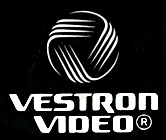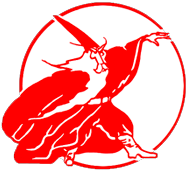History and Information
NOTE: Some of the Vestron releases have the prefix to the catalog number (VA), some don't. Thus, I'm adding the prefix to the ones that don't have it so we can have a consistent chronological catalog. Vestron was founded in 1981 by Austin Owen Furst, Jr. (born 1943), an executive at HBO, who was hired to dismantle some assets of Time-Life: its theatrical, television, and home video divisions. Although he had no problem selling off the former two assets, Furst was having a hard time selling off the latter, and eventually decided to keep and rename the video division. Furst's daughter suggested "Vestron", named after the Roman goddess Vesta and "Tron", which means "instrument" in Greek. [1] The company held on to its Time-Life Video library, and was also responsible for releases on VHS videocassette of mostly B movies and films from Cannon Films' library. The most notable titles Vestron released were Dirty Dancing, Monster Squad, and An American Werewolf in London. In later years, the company began to shift towards mainstream films, including films released through their Vestron Pictures subsidiary, most notably Dirty Dancing. The company was the first company to release National Geographic videos in the late 1980s, and was the first to market with a pro wrestling video, "Pro Wrestling Illustrated Presents Lords of the Ring". They also released a 3-volume series called "How to Beat Home Video Games", which contains strategies for video games of the time. Vestron went public on the New York Stock Exchange in 1985 with what was at the time a large market cap IPO of $440MM, which was oversubscribed. The company enjoyed success for several years, at one point exceeding 10% of the US video movie market. At its high point sales approximated $350MM annually, and the company sold video movies in over 30 countries either directly or through sub licensing agreements. This was basically a rights business, built by some insightful people who appreciated the video (VCR) rights to films before the major studios did.[citation needed] Eventually the major studios smartened up, and film product became increasingly harder for Vestron to acquire. Also, independent producers increased the price of those available. The company started to make its own films (Dirty Dancing, Earth Girls Are Easy, Blue Steel), but when the market's preferences matured and shifted from watching almost any film to just watching "A" titles, for which the majors had a stronghold, the company was committed already with a pipeline of about 20 "B" to low "A" projects. Financing for the company fell through and it eventually filed for bankruptcy under Chapter 11, and was bought out on January 11, 1991 by Los Angeles-based LIVE Entertainment, a home video and music company, for $27.3 million. LIVE acquired Vestron's extensive (3,000 plus) film library. Their international divisions were the second largest just after Warner Bros. It had many direct theatrical, video and TV distribution offices all around the world in major markets and owned a video manufacturing plant in the Netherlands to supply European markets. Today, most of the holdings of Vestron Video are now owned by Lions Gate Entertainment. (http://en.wikipedia.org/wiki/Vestron_Video)









Comments 0
Login / Register to post comments